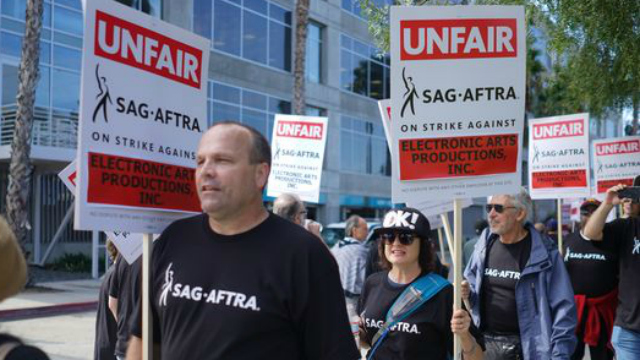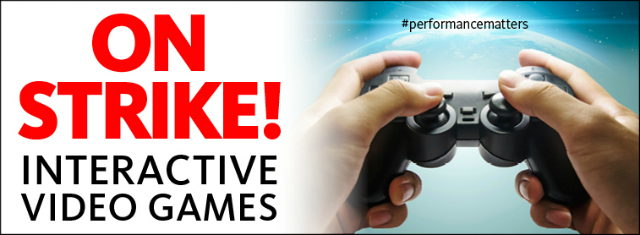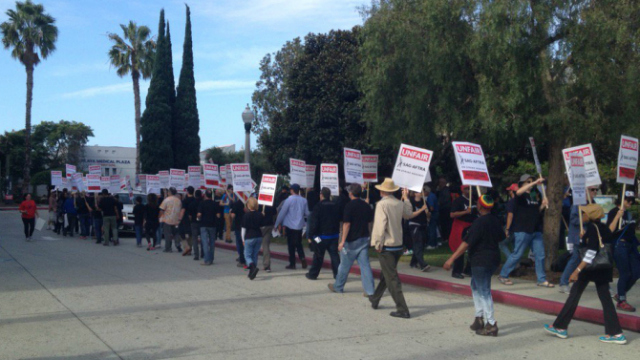Picket lines outside Electronic Arts’ Playa Vista office marked the first physical action for striking members of the SAG-AFTRA workers union, in what has quickly become a divisive issue in the video game industry.
The strike represents over two years of failed negotiations, and halts work on games from eleven of the largest game publishers, including EA, Activision, and Take 2 among others. More importantly, however, it casts a stark light on the messiest part of game development: Just how much is an employee’s work valued, and is it enough?
The union’s action hinges on two major sticking points — transparency about the game’s voice actors are working on, and residual payment for actors who contribute to successful games. These may seem familiar, as they’re both issues that developers themselves have faced.

One of the most common criticisms of this strike is the idea that voice actors are attempting to take a bigger slice of the pie than those developers — why should they get better treatment than the people actually making the game?
But don’t take it from me — here’s Ubisoft Montreal Creative Director Alex Hutchinson responding to Wil Wheaton’s blog post about why he supports the action:
If @WilWheaton gets royalties on a game before myself or any of the others who spent years (not weeks) working on it, the system is broken.
— Alex Hutchinson (@BangBangClick) September 23, 2015
What Hutchinson doesn’t realize is that he’s inadvertently critiqued the game industry as a whole. The system is broken, but not for the reason he thinks it is.
Developers, that means everyone, from programmers to artists to sound designers, are an undervalued resource in the game industry. They are expected to work long hours — in some cases up to 100 hour work weeks — often under the guise of “crunch time”, which some say doesn’t even work.
A 2014 survey by the International Game Developers Association found that 53% of developers think crunch is unnecessary. Likewise, the same survey found that 56% support forming an industry-wide union.
As it happens, many of the publishers most criticized for their use of crunch, such as EA and Take 2, are also being targeted by this voice actors strike.
And crunch is just one of the issues that plague game development. By and large, developers are paid less than their contemporaries, while they’re expected to put in twice the hours.

So maybe instead of thinking that voice actors are trying to invalidate the hard work of developers, critics of the strike should be taking notes. The kind of unified front that voice actors have presented is what’s necessary to change working conditions across the industry.
Voice actress Ashly Burch, who plays the main character of the upcoming Horizon: Zero Dawn may have said it best:
Passion is a beautiful thing. It’s being taken advantage of. Everyone in the games industry – from devs to actors – deserve better.
— Ashly Burch (@ashly_burch) October 21, 2016
In other words, the hard line stance that SAG-AFTRA has taken may just be the call to action the rest of the industry needs.







Published: Oct 25, 2016 07:51 pm